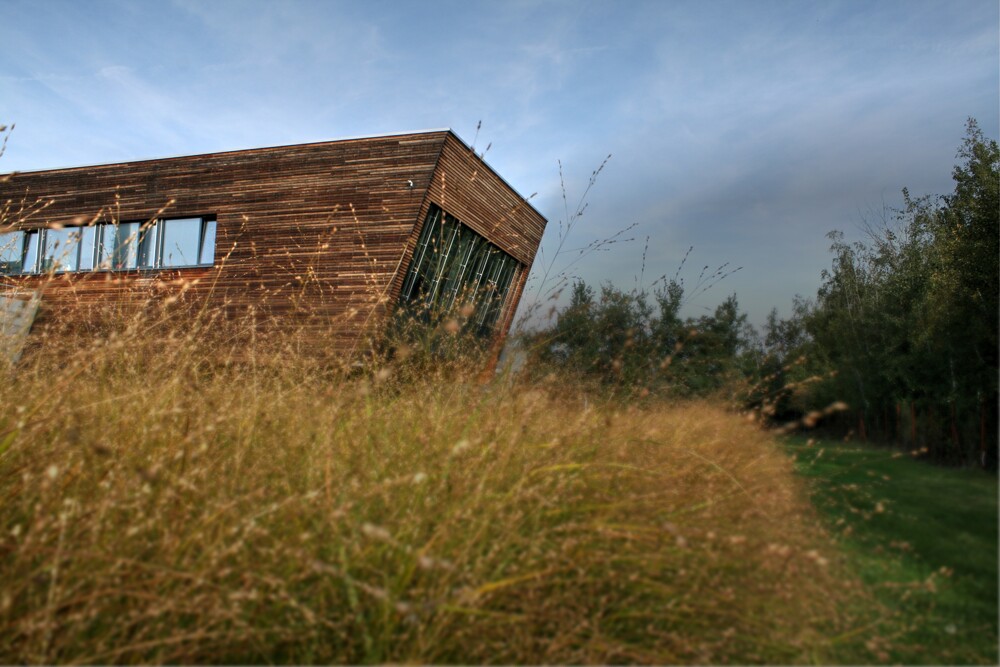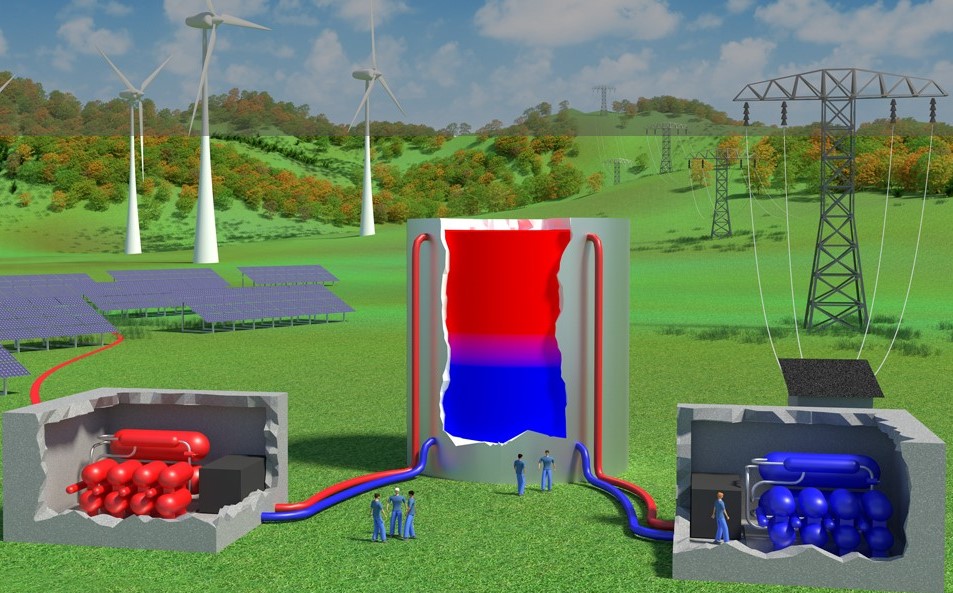The CTU University Centre for Energy Efficient Buildings, in cooperation with the company Mach Heat Pumps, has successfully
completed the testing of the concept of storing electricity through heat stored in stone dust in a Carnot battery.
As part of the project, we have developed an experimental system combining a heat pump and an organic Rankine cycle with
a stone dust storage tank, or Carnot battery, which is a device that stores surplus electricity as heat when it is abundant
in the grid and its price is low, and in turn generates electricity back from the stored heat when it is scarce and its price
is rising. Our objective was to verify the functionality of the concept of charging a rock dust storage with heat at 125°C
produced from cheap electricity by a heat pump that has a 60°C waste heat source from industrial production as input, which
was simulated by the heating system of the UCEEB building. The discharge is through an organic Rankine cycle that converts
the stored heat at 125 °C back into electricity.
The results of testing have confirmed that our concept works in practice, although further development will be needed to
bring it to commercial use. In addition, as part of the project, we have published articles describing methods of storing
electricity by back-conversion to heat and comparing currently existing commercial projects around the world.
The project for young researchers Utilization of low-potential waste heat for electricity storage using the Carnot batteries
concept was supported by the Technology Agency of the Czech Republic under the Zéta programme.



